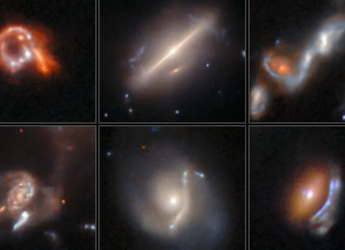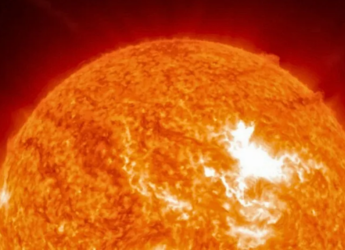- Home
- Science
- Science News
- Nasa Partners Darpa on 'Deep Web' Search Tech to Decode Space Data
Nasa Partners Darpa on 'Deep Web' Search Tech to Decode Space Data

Now, Nasa researchers have joined the US Defense Advanced Research Projects Agency (Darpa) initiative to harness the benefits of "Deep Web" searching for science.
The project, called Memex, could help catalogue the vast amounts of data Nasa spacecraft deliver on a daily basis.
"We are developing next-generation search technologies that understand people, places, things and the connections between them," said Chris Mattmann, principal investigator on Memex at the Nasa's Jet Propulsion Laboratory in Pasadena, California.
"Memex" checks not just standard text-based content online but also images, videos, pop-up ads, forms, scripts and other ways information is stored to look at how they are interrelated.
"We are augmenting web crawlers to behave like browsers in other words, executing scripts and reading ads in ways that you would when you usually go online. This information is normally not catalogued by search engines," Mattmann explained.
Additionally, a standard web search does not get much information from images and videos but Memex can recognise what is in this content and pair it with searches on the same subjects.
The search tool could identify the same object across many frames of a video or even different videos.
The video and image search capabilities of Memex could one day benefit space missions that take photos, videos and other kinds of imaging data with instruments such as spectrometers.
"Searching visual information about a particular planetary body could greatly facilitate the work of scientists in analysing geological features," the authors noted.
Scientists analysing imaging data from the Earth-based missions that monitor phenomena such as snowfall and soil moisture could similarly benefit.
"We are developing open source, free, mature products and then enhancing them using Darpa investment and easily transitioning them via our roles to the scientific community," Mattmann pointed out.
Memex would also enhance the search for published scientific data, so that scientists can be better aware of what has been released and analysed on their topics, the US space agency said in a statement.
Get your daily dose of tech news, reviews, and insights, in under 80 characters on Gadgets 360 Turbo. Connect with fellow tech lovers on our Forum. Follow us on X, Facebook, WhatsApp, Threads and Google News for instant updates. Catch all the action on our YouTube channel.
- Samsung Galaxy Unpacked 2025
- ChatGPT
- Redmi Note 14 Pro+
- iPhone 16
- Apple Vision Pro
- Oneplus 12
- OnePlus Nord CE 3 Lite 5G
- iPhone 13
- Xiaomi 14 Pro
- Oppo Find N3
- Tecno Spark Go (2023)
- Realme V30
- Best Phones Under 25000
- Samsung Galaxy S24 Series
- Cryptocurrency
- iQoo 12
- Samsung Galaxy S24 Ultra
- Giottus
- Samsung Galaxy Z Flip 5
- Apple 'Scary Fast'
- Housefull 5
- GoPro Hero 12 Black Review
- Invincible Season 2
- JioGlass
- HD Ready TV
- Laptop Under 50000
- Smartwatch Under 10000
- Latest Mobile Phones
- Compare Phones
- OPPO A6v 5G
- OPPO A6i+ 5G
- Realme 16 5G
- Redmi Turbo 5
- Redmi Turbo 5 Max
- Moto G77
- Moto G67
- Realme P4 Power 5G
- HP HyperX Omen 15
- Acer Chromebook 311 (2026)
- Lenovo Idea Tab Plus
- Realme Pad 3
- HMD Watch P1
- HMD Watch X1
- Haier H5E Series
- Acerpure Nitro Z Series 100-inch QLED TV
- Asus ROG Ally
- Nintendo Switch Lite
- Haier 1.6 Ton 5 Star Inverter Split AC (HSU19G-MZAID5BN-INV)
- Haier 1.6 Ton 5 Star Inverter Split AC (HSU19G-MZAIM5BN-INV)












